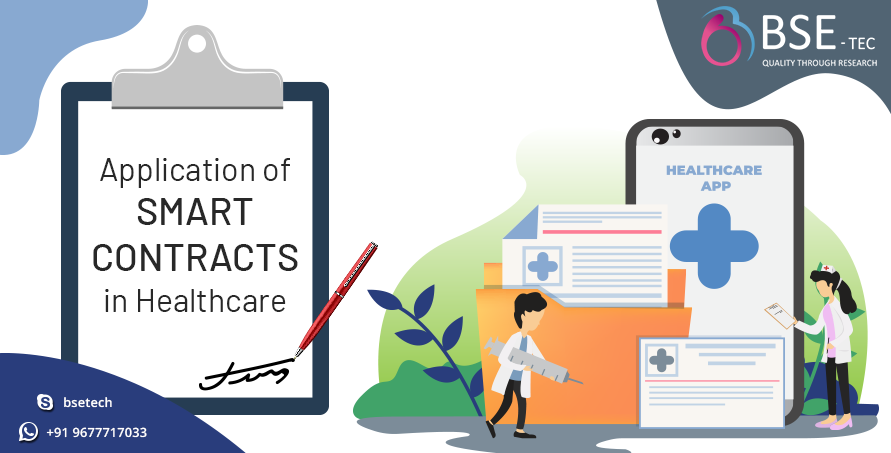Application of Smart Contracts in Healthcare

Newer technologies arise, and healthcare is the first industry to adopt the technology concept as their needs are wider like an ocean and sea. Why does healthcare adopt new technologies like blockchain and smart contracts? Let’s see how and why smart contracts are involved in healthcare.
- The first and foremost thing is patients need to carry their files, and reports, on every visit, and each hospital provides a unique card system to patients with the Patient name, address, age, and DOB. They check their records which can take time, data mismatch occurs or sometimes file gets missed, so healthcare sectors implement blockchain more specifically with Smart contracts that can be used to securely store and manage patient health records. Smart contracts can facilitate the secure and transparent sharing of prescription information between healthcare providers, pharmacies, and patients.
- Smart contracts can automate the process of insurance claims by verifying the validity of claims based on predefined conditions. This can reduce the administrative burden and processing time for both patients and insurance companies.
- In healthcare, smart contracts can be used to track and authenticate the supply chain of pharmaceuticals and medical devices. Smart contracts can record the SKU of each pharmacy and each step of the supply chain on a blockchain. Smart contracts can reduce the risk of counterfeit or substandard items entering the market and easily track the products, units, Expiry date, and so on.
- In recent days there has been the concept of home sample collections/ medical camp activities in corporate buildings/associative communities. Medical field officers collect the clinical samples and they can streamline with smart contracts by automating tasks such as participant enrollment, data collection, and monitoring of trial milestones. This can enhance the efficiency and transparency of clinical research, while also ensuring compliance with ethical and regulatory requirements.
- Once consultations and sample collections are analyzed, finally payments and billing turn up. If in particular, you require insurance assistance, using smart contracts can automate payment processes between healthcare providers, insurance companies, and patients. By executing predefined payment conditions, such as verifying the completion of a medical service or the eligibility of a claim, smart contracts can streamline billing and reduce administrative costs.
Smart contracts have the potential to revolutionize various aspects of healthcare by enhancing data security, streamlining processes, and improving transparency and efficiency. The global healthcare smart contracts market surpassed USD 1.7 billion in 2021 and is expected to hit around USD 7.9 billion by 2030 so never wait, it’s your turn to upgrade with smart contracts in blockchain to reach BSEtec a leading blockchain development company that can build your contracts.
Did you find this article useful? Let us know by leaving a comment below, or join us on Twitter and Facebook.




